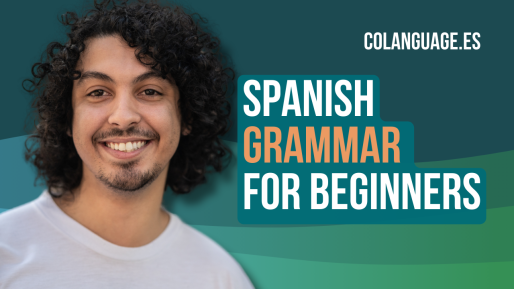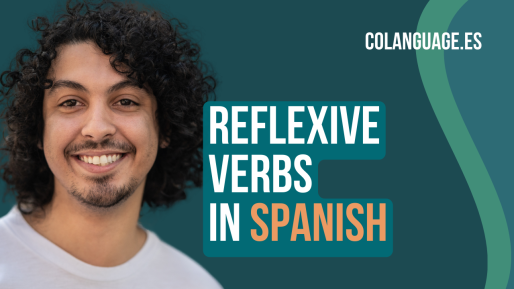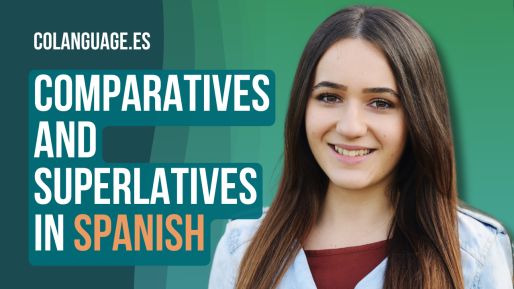Imperfect subjunctive in Spanish: conjugation and examples Share Copied!
Spanish
Learn about the Spanish imperfect subjunctive: its conjugation, use and many examples.
Video
Podcast
What is the imperfect subjunctive?
The imperfect subjunctive is a tense used to express doubt, desire, or uncertainty.
- Quería que ella viniera a la fiesta. (I wanted her to come to the party.)
- Si tuviera más tiempo, viajaría por el mundo. (If I had more time, I would travel the world.)
- Era importante que estudiaras para el examen. (It was important for you to study for the exam.)
When to use the imperfect subjunctive
The imperfect subjunctive in Spanish is used in conditional statements, past actions with uncertainty, expressing wishes, and with "if" clauses.
| Use case | Spanish | English |
|---|---|---|
| Conditional sentences | Me gustaría que hablaras más fuerte. | I would like you to talk louder. |
| Express uncertainty | Te llamé para que vinieras. | I called you, so you would come over. |
| Express wishes | Ojalá hablarais más idiomas. | I wish you spoke more languages. |
| "If" clauses | Si fuera más joven, tendría más energía. | If I was young, I would have more energy. |
| "If" clauses | Si tuviera más espacio, adoptaría una mascota. | If I had more space, I would adopt a pet. |
| "If" clauses | Si comieras más verduras, te sentirías mejor. | If you ate more vegetables, you would feel better. |
Listening exercise
In this listening exercise, we will practise with the imperfect subjunctive in Spanish.
| Spanish | English | |
|---|---|---|
| María | ¿Te gustaría venir a mi casa? | Would you like to come to my house? |
| Daniel | Preferiría que vinieras a la mía para estudiar juntos. | I would prefer you to come to mine to study together. |
| María | Vale. Me gustaría que comiéramos antes de estudiar. | Okay. I would like us to eat before studying. |
| Daniel | Genial. Si tuviera más tiempo, te invitaría a cenar también. | Great. If I had more time, I would also invite you to dinner. |
| María | Ojalá fuera ya el fin de semana para vernos más. | I wish it was already the weekend so we could see each other more. |
There are two ways of conjugating regular verbs in the imperfect subjunctive, and both ways are correct.
Yo comiera (I would eat)-iera
Yo comiese (I would eat)-iese
The imperfect subjunctive: verbs ending in -ar
The past subjunctive in Spanish is formed with the stem of the third person plural of the pretérito indefinido of the verb, dropping the ending and adding the appropriate subjunctive endings -ara, -aras, -ara, -áramos, -arais, -aran.
| Verb | Spanish | English |
|---|---|---|
| Trabajar (to work) |
Dudo que yo trabajara en esa empresa. | I doubt that I would work in that company. |
| Hablar (to speak) |
Era necesario que tú hablaras con franqueza. | It was necessary that you spoke frankly. |
| Cantar (to sing) |
Ojalá ella cantara más a menudo. | I wish she sang more often. |
| Probar (to try) |
Es una pena que no probáramos las tapas españolas. | It's a shame we didn't try the Spanish tapas. |
| Contar (to tell) |
Nos hubiera gustado que contarais más sobre vuestro viaje. | We would have liked you to tell more about your trip. |
| Llegar (to arrive) |
Yo dudaba que llegaran a tiempo al aeropuerto. | I doubted they would arrive at the airport on time. |
When conjugating "-ar" regular verbs, use any of the two endings:
trabajaron trabaj -ase/-ases/-ase/-ásemos/-aseis/-asen
trabajaron trabaj -ara/-aras/-ara/-áramos/-arais/-aran
Listening exercise
In this listening exercise, we will practise the conjugation of verbs ending is "-ar" in Spanish.
| Spanish | English | |
|---|---|---|
| Daniel | ¡Ojalá cantara mejor! Es uno de mis grandes sueños. | I wish I sang better! It's one of my biggest dreams. |
| María | Es cuestión de práctica. ¿Y si probaras a cantar en público? | It's a matter of practice. What if you tried to sing in public? |
| Daniel | Seguro que mejoraría si trabajara más en mi voz. | I'm sure I would improve if I worked more on my voice. |
| María | Sí, pienso lo mismo. Me hubiera gustado que me contaras tus miedos antes. | Yes, I think the same. I wish you had told me about your fears earlier. |
The imperfect subjunctive: verbs ending in -er and -ir
When conjugating regular "-er" and "-ir" verbs, the endings -iera, -ieras, -iera, -iéramos, -ierais, and -ieran are added to the verb stem of the third person plural of the pretérito idefinido.
| Verb | Spanish | English |
|---|---|---|
| Aprender (to learn) |
Si yo aprendiera más vocabulario, podría hablar mejor español. | If I learned more vocabulary, I could speak Spanish better. |
| Beber (to drink) |
Ojalá bebieras más agua durante el día. | I wish you would drink more water throughout the day. |
| Comer (to eat) |
Era importante que él comiera alimentos sanos. | It was important that he ate healthy food. |
| Vivir (to live) |
Si viviéramos en el campo, tendríamos una casa más grande. | If we lived in the countryside, we would have a bigger house. |
| Escribir (to write) |
Ojalá escribieras más a menudo sobre papel. | I wish you wrote more often on paper. |
| Compartir (to share) |
Era esencial que compartieran sus conocimientos con la comunidad. | It was essential that they shared their knowledge with the community. |
For the verbs ending in "-er" and "-ir" there are also two possibilities to conjugate the verbs.
bebieron beb -iese/-ieses/-iese/-iésemos/-ieseis/-iesen
bebieron beb -iera/-ieras/-iera/-iéramos/-ierais/-ieran
Listening exercise
Now you can listen to this dialogue where verbs in "-er" and "-ir" are conjugated in the imperfect subjunctive.
| Spanish | English | |
|---|---|---|
| Daniel | Ojalá aprendiéramos a alimentarnos mejor. | I wish we learned how to eat better. |
| María | Sí, sería genial si bebiéramos menos café y más agua. | Yes, it would be great if we drank less coffee and more water. |
| Daniel | Si comiéramos más sano, nos sentiríamos mejor. | If we ate healthier, we would feel better. |
| María | Si viviera en otro país, podría experimentar con recetas nuevas. | If I lived in another country, I could experiment with new recipes. |
| Daniel | Sería maravilloso que las compartieras conmigo. | It would be wonderful if you shared them with me. |
Irregular verbs: imperfect subjunctive in Spanish
Unlike regular verbs, irregular ones can be challenging as they don't follow consistent rules.
| Verb | Spanish | English |
|---|---|---|
| Ser (to be) |
Ojalá fueras más comprensivo. | I wish you were more comprehensive. |
| Ir (to go) |
Si fueras al partido, podrías verme jugar. | If you went to the match, you could see me play. |
| Hacer (to do) |
Esperábamos que él hiciera la tarea correctamente. | We hoped that he would do the homework correctly. |
| Pedir (to aks for) |
Si pidieras ayuda, todo sería más fácil. | If you asked for help, everything would be easier. |
| Dormir (to sleep) |
Ojalá durmiera más de seis horas al día. | I wish that I could sleep more than six hours per day. |
| Leer (to read) |
Me gustaría que leyerais dos capítulos del libro esta semana. | I would like you to read two chapters of the book this week. |
| Traer (to bring) |
Ojalá nos trajeran regalos. | I wish they would bring us presents. |
| Andar (to walk) |
Fue importante que anduviéramos rápido para llegar a tiempo. | It was important that we walked fast to arrive on time. |
| Tener (to have) |
Si tuvieran más paciencia, estarían más tranquilos. | If they had more patience, they would be calmer. |
The verbs ser (to be) and ir (to go) share the same conjugation in the imperfect subjunctive, distinguished by their context in sentences.
Ojalá fueras más comprensivo. (I wish you were more comprehensive.)ser (to be)
Si fueras al partido, podrías verme jugar. (If you went to the match, you could see me play.)ir (to go)
Listening exercise
This listening exercise puts into practise the conjugation of irregular verbs in the imperfect subjunctive.
| Spanish | English | |
|---|---|---|
| Daniel | ¡Hola, ¿cómo estás? | Hi, how are you? |
| María | Bien, pero preferiría que el clima no fuese tan frío estos días. | I'm good, but I would prefer the weather not to be so cold these days. |
| Daniel | Sí, ojalá tuviéramos un poco más de sol. | Yes, I wish we had a bit more sun. |
| María | Por cierto, tengo un libro que me gustaría que leyeras. | By the way, I have a book that I would like you to read. |
| Daniel | ¡Muchas gracias! Ojalá pudiera dedicarle más tiempo a la lectura. | Thank you very much! I wish I could dedicate more time to reading. |
| María | Recuerdo cuando mi madre me leía por las noches para que me durmiera. | I remember when my mother used to read to me at bedtime to help me fall asleep. |
Key takeaways
Here is a quick summary of this lesson.
- The imperfect subjunctive is used in conditional statements, past actions with uncertainty, wishes, and in "if" clauses.
- The imperfect subjunctive is formed by adding the appropriate subjunctive endings to the stem of the third person plural of the "pretérito indefinido" of the verb, dropping the ending and adding the imperfect subjunctive endings.
- Irregular verbs don't follow follow consistent rules.
Subscribe to our social media channels to get free daily exercises!



